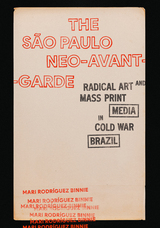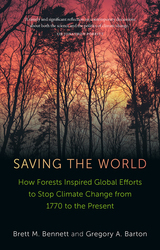9 start with C start with C
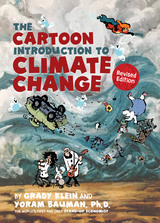
That creativity comes from the minds of Yoram Bauman, the world’s first and only “stand-up economist,” and award-winning illustrator Grady Klein. After seeing their book used in classrooms and the halls of Congress alike, the pair has teamed up again to fully update the guide with the latest scientific data from the IPCC (Intergovernmental Panel on Climate Change).
A lot has happened to the climate over the last decade, and the authors tackle the daunting statistics with their trademark humor. They realize it’s better to laugh than cry when confronting mind-blowing facts about our changing world. Readers will become familiar with critical concepts, but they’ll also smile as they learn about climate science, projections, and policy.
Sociologists have argued that we don’t address climate change because it’s too big and frightening to get our heads around. The Cartoon Introduction to Climate Change takes the intimidation and gloom out of one of the most important challenges of our time.
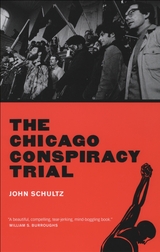
In 1969, the Chicago Seven were charged with intent to "incite, organize, promote, and encourage" antiwar riots during the chaotic 1968 Democratic National Convention in Chicago. The defendants included major figures of the antiwar and racial justice movements: Abbie Hoffman and Jerry Rubin, the madcap founders of the Yippies; Tom Hayden and Rennie Davis, longtime antiwar organizers; David Dellinger, a pacifist and chair of the National Mobilization Committee to End the War in Vietnam; and Bobby Seale, co-founder of the Black Panther Party, who would be bound and gagged in the courtroom before his case was severed from the rest.
The Chicago Conspiracy Trial is an electrifying account of the months-long trial that commanded the attention of a divided nation. John Schultz, on assignment for The Evergreen Review, witnessed the whole trial of the Chicago Seven, from the jury selection to the aftermath of the verdict. In his vivid account, Schultz exposes the raw emotions, surreal testimony, and judicial prejudice that came to define one of the most significant legal events in American history.
In October 2020, Aaron Sorkin's film, The Trial of the Chicago Seven, will bring this iconic trial to the screen.
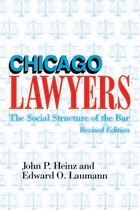
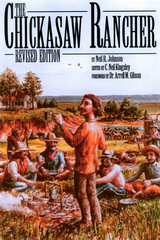
The Chickasaw Rancher follows Montford T. Johnson's family and friends for the next thirty-two years. Neil R. Johnson describes the work, the ranch parties, cattle rustling, gun fights, tornadoes, the run of 1889, the hard deaths of many along the way, and the rise, fall, and revival of the Chickasaw Nation.
This revised edition of The Chickasaw Rancher, edited by C. Neil Kingsley, Neil R. Johnson's grandson, is the perfect addition to any reader's collection of the history of the American West.

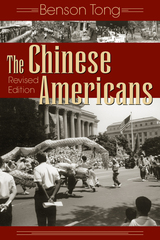
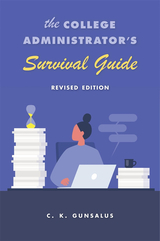
The book that every dean and department chair needs to survive—and thrive—in the twenty-first-century university.
First released in 2006, The College Administrator’s Survival Guide has served as the bible for a generation of provosts, deans, department chairs, and program directors. Shrewd administrators have returned to the guide time and again for C. K. Gunsalus’s advice on handling complaints, negotiating disagreements, and dealing with difficult personalities. Now, in this revised and updated edition, Gunsalus guides rookie administrators and seasoned veterans through today’s most pressing higher-education challenges.
These days academic leaders must respond to heightened demands for transparency and openness. These demands are intensified by social media, which increases the visibility of university conflicts and can foster widespread misinformation about campus affairs. Meanwhile, institutions have become flatter, with administrators expected to work more closely with faculty, students, and a range of professionals even as support staffs shrink. Between the ever-replenishing inbox, the integration of often-exasperating management systems into every dimension of academic life, and the new demands of remote learning, deans and department heads are juggling more balls than ever before. Tightening budgets have already forced administrators into more difficult choices and, in the wake of COVID-19, there will be no relief from financial constraints.
From #MeToo to partisan battles over curricula and funding, college and university leaders need more savvy and greater sensitivity than ever. What hasn’t changed are the challenges of dealing with difficult people and the importance of creating and maintaining environments in which faculty, staff, and students have the support they need to do their best work. The College Administrator’s Survival Guide provides the tools to keep cool and get the job done.

This revised edition has been updated to cover Allende's three newest books—City of the Beasts, Portrait in Sepia: A Novel, and Daughter of Fortune. It includes four new interviews in which Allende discusses completing her trilogy of novels that began with House of the Spirits, as well as her ongoing spiritual adventure and political interests.
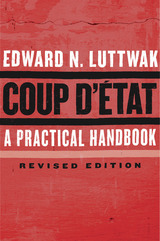
Coup d’État astonished readers when it first appeared in 1968 because it showed, step by step, how governments could be overthrown. Translated into sixteen languages, it has inspired anti-coup precautions by regimes around the world. In addition to these detailed instructions, Edward Luttwak’s revised handbook offers an altogether new way of looking at political power—one that considers, for example, the vulnerability to coups of even the most stable democracies in the event of prolonged economic distress.
The world has changed dramatically in the past half century, but not the essence of the coup d’état. It still requires the secret recruitment of military officers who command the loyalty of units well placed to seize important headquarters and key hubs in the capital city. The support of the armed forces as a whole is needed only in the aftermath, to avoid countercoups. And mass support is largely irrelevant, although passive acceptance is essential. To ensure it, violence must be kept to a minimum. The ideal coup is swift and bloodless. Very violent coups rarely succeed, and if they trigger a bloody civil war they fail utterly.
Luttwak identifies conditions that make countries vulnerable to a coup, and he outlines the necessary stages of planning, from recruitment of coconspirators to postcoup promises of progress and stability. But much more broadly, his investigation of coups—updated for the twenty-first century—uncovers important truths about the nature of political power.
READERS
Browse our collection.
PUBLISHERS
See BiblioVault's publisher services.
STUDENT SERVICES
Files for college accessibility offices.
UChicago Accessibility Resources
home | accessibility | search | about | contact us
BiblioVault ® 2001 - 2024
The University of Chicago Press


